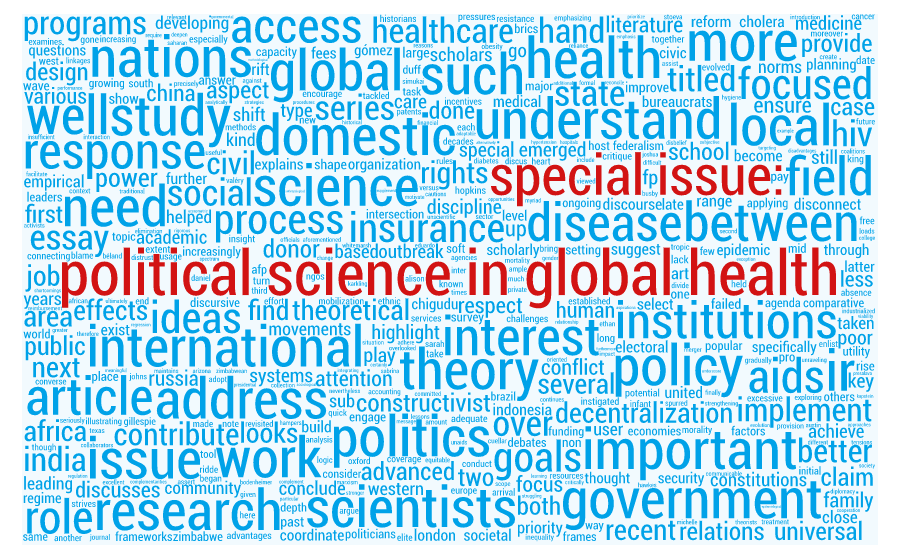By Eduardo J. Gómez
Over the past two decades, the study of the politics of global health has become an increasingly popular and important scholarly topic. A host of social scientists, public health researchers, medical scientists and historians have taken an interest in exploring the international and domestic political aspects of healthcare reform, ranging from government and civil societal responses to disease, to issues of health insurance coverage, health systems strengthening, and inequality in social services provision. There has also been a shift from a focus on healthcare issues in the advanced industrialized nations, such as the United States and Western Europe, to the developing world and more recently, select emerging economies, such as the BRICS (Brazil, Russia, India, China and South Africa).
A less well known – though increasingly important – area of scholarly research examines the role that the academic discipline of political science has played in the study of global health politics and policy. In recent years only a select handful of leading political scientists in the field have tackled global health politics and policy issues, focusing on how political science theory and methods advances our understanding of these issues. Moreover, the discipline’s attention to global health has gradually evolved over the years, with an initial interest spurred by the arrival of the HIV/AIDS epidemic in Africa; the international community’s response to the epidemic; AIDS’ effects on state capacity; the importance of regime type and ethnic conflict in policy responses; the importance of federalism and decentralization and human rights in access to medicine. Recent studies have also revisited the field of political science’s contribution to the study of AIDS, highlighting the need for further research …

